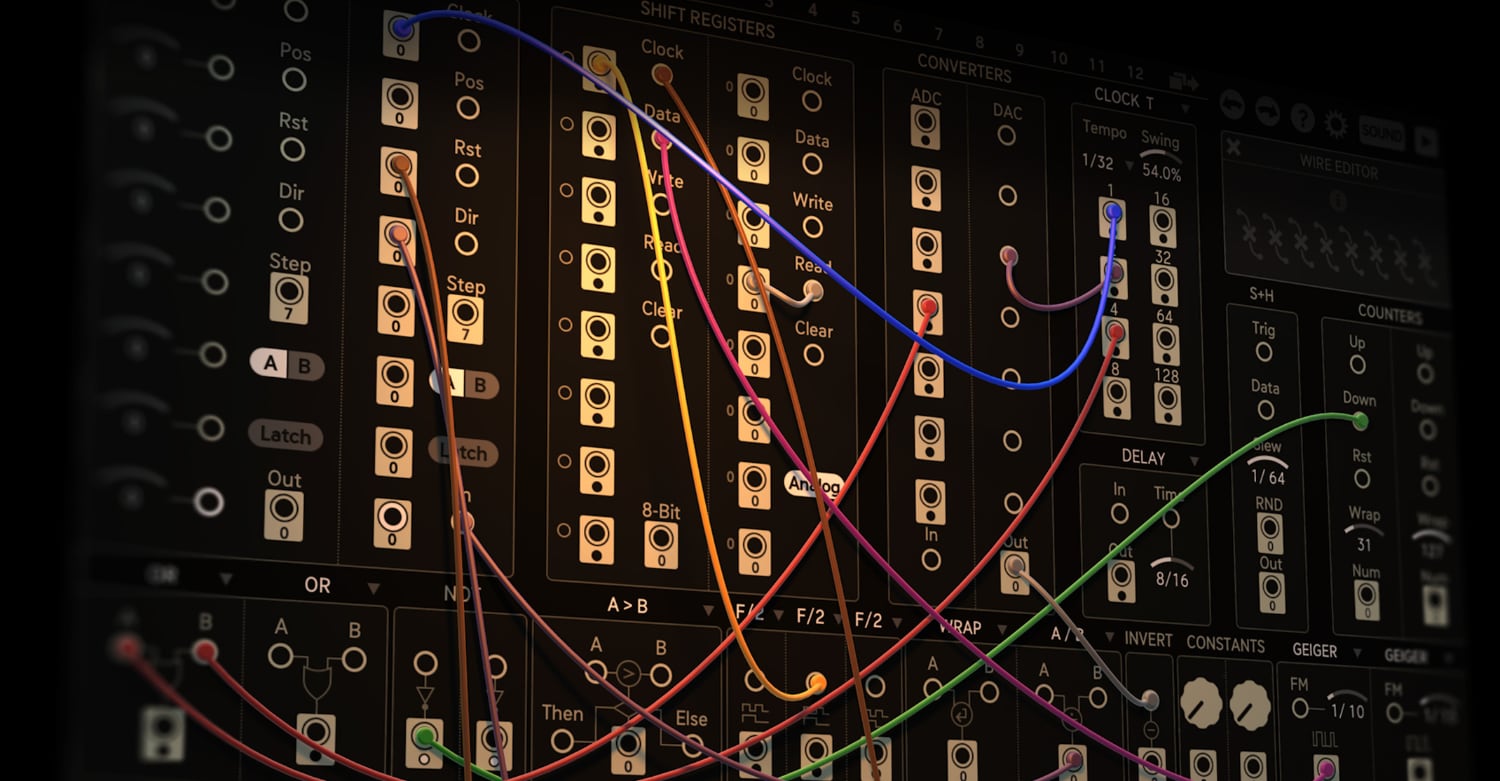Sugar Bytes – Nest 1.0.2 STANDALONE, VSTi, AAX, AUi WIN.OSX x64

MIDI sequencer based on rules. Nest is a modular system focused on MIDI creation. Main components: 20 modules inspired by classic integrated circuits and modern computer functions, smart voice for synthesizer assignment, 12 patch scenes and a quad-core VST / Synth / MIDI interface.
Nest is a modular sequencer. It offers all kinds of modules for generating and processing triggers and numbers. You can create very complex sequencer environments to create music that takes on a life of its own.
The Nest is equipped with similarities to classic transistor-based integrated circuits such as shift registers or multiplexers, as well as programming tools such as if / else and math modules. There’s also a recordable sequencer and flexible arpeggiator to make life easier when you need it.
Intelligent Voice Assignment maps 8 possible MIDI voices to 4 different sound generators such as VSTs, internal synthesizers, and drum or MIDI channels. This can make Nest interesting not only for hosting your favorite plugins, you can also use it to grow your fleet.
The hardware is made up of interesting components and is a lot of fun to tinker with, now Nest delivers this experience without the extra parts and the magic smoke. It provides access to the basic building blocks of modern electronics, and allows you to make corrections and experiment freely.
You can put circuits together like Lego bricks and the possibilities are endless. Create beats from numbers and numbers from beats, distribute patterns across multiple sound sources, create intelligent song machines.
Nest is an ultra-flexible compositional instrument that combines classic transistor logic with the functions of a modern computer.
Connecting wires offers endless possibilities and surprises. With 12 patch scenes and a powerful audio interface, Nest is a small laboratory for sophisticated smart music machines.
On the Wire page, we create an awesome patch and send it to 8 voice slots. The range of possibilities is endless. More than 20 modules for combining, some more for numbers (pitch, speed, modulation), some for gates (triggers, beats). With 12 scenes, the patch can have many variations and lets you play with song structures.
On the sound page, we get these 8 voices and freely distribute them across 4 channels. So we could have a big layered chord of 8 voices, or 3 voices could be drums, 3 more chords, and the last two a bass line and some samples. Each channel can be an internal synthesizer, a VST plug-in, or a MIDI output.
Wonderful reverb makes your patch look more perspective and adds flavor to even the simplest sounds. With multiple audio outputs, each audio channel plus the reverb channel can be routed to a separate DAW channel.